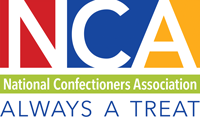The PennLive/Patriot-News editorial board opposed Pennsylvania’s proposal to ban certain FDA-approved food additives, saying that “such action could hurt Pennsylvania food manufacturing companies if each state is allowed to set its own safety standards.”
We support science-based evaluation of food additives by those with the necessary expertise – and we follow and will continue to follow regulatory guidance from the authorities in this space – but usurping FDA’s authority creates a state-by-state patchwork of inconsistent state requirements that increase food costs, create confusion around food safety, and erode consumer confidence in our food supply.
The editorial board is in agreement, encouraging Pennsylvania legislators to “keep pressure on the FDA to better serve not only Pennsylvanians but all Americans.”
Read more from the PennLive/Patriot-News Editorial Board, published on April 12, 2024:
Scientists at the FDA should determine what foods are safe, not local politicians
California has become the first state in the nation to take food safety into its own hands and ban some popular candies and drinks with additives its legislators consider unsafe. The legislature has passed The California Food Safety Act, banning foods and beverages that contain additives like Red Dye 3 that some scientific studies have connected to cancer and other diseases.
Some Pennsylvania legislators would like to do the same. We don’t think it’s a good idea.
State Reps. Natalie Mihalek, R-Allegheny and Washington counties, and Melissa Shusterman, D-Chester County, have introduced two bills to ban some additives and dyes in products sold in Pennsylvania. Many popular food candies, sodas, baked goods, cereals and even fruit cups contain the additives in question.”
The proposed Pennsylvania legislation would not be identical to California’s. Ours would eliminate six food dyes including red dyes No. 3 and 40, Yellow Dyes No. 5 and 6, along with Blue Dyes No. 1 and 2 that the legislators say are linked to cancer, hyperactivity and behavioral difficulties in children.
Shusterman’s bill would prohibit products that contain potassium bromate, brominated vegetable oil and BHA, all ingredients she believes are harmful to health.
On the surface, it may look like California and the Pennsylvania legislators are acting boldly to protect people, but they may be doing more harm than good. And such action could hurt Pennsylvania food manufacturing companies if each state is allowed to set its own safety standards.
Hershey, Auntie Anne’s, Martin’s, Heinz, Bassets, and other Pennsylvania companies could be faced with having to meet 50 different standards, set by politicians with only a Google understanding of medicine, science, and nutrition.
That’s why we have the U.S. Food and Drug Administration (FDA). We’re a union of states with national institutions that set national standards for major issues like the safety of food and drugs. The FDA has trained scientists who do independent research subject to peer review and public scrutiny. The last thing we need are people without expertise deciding what foods and medicines Pennsylvanians should or shouldn’t have.
Representatives of the National Confectioners Association (NCA) who met with PennLive’s Editorial Board made a convincing argument the matters involving public health should be left to experts. They argued the connection to red dye 3 and cancer is not conclusive and has never been proven in humans, only in animals. They also noted the FDA is in the process of reviewing its recommendations on the additives and may revise them.
They are urging legislators in Pennsylvania and other states to let the FDA do its work. We agree.
But California’s bold actions has brought much needed attention to the issue of food safety and several companies have already removed or are planning to remove the additives from their products.
And California’s actions may have focused a spotlight on serious flaws in how the FDA operates. Many believe the FDA needs a complete overhaul, which the NCA representatives say is well underway.
Many also are concerned the FDA is too secretive in its work and needs to be more transparent in how it comes up with its standards for food and drugs. In addition to its lab work, the FDA needs to develop a plan to strengthen public trust and confidence. And most of all, the FDA needs to do its work quicker, especially when it involves public health and safety.
If the FDA doesn’t get its house in order soon, it will see more states going the route California has taken. We urge Pennsylvania legislators not to act hastily, but to keep pressure on the FDA to better serve not only Pennsylvanians but all Americans.




